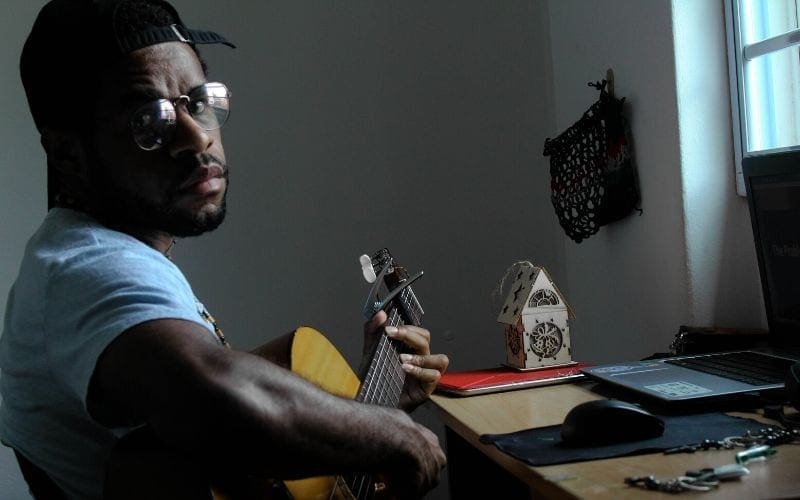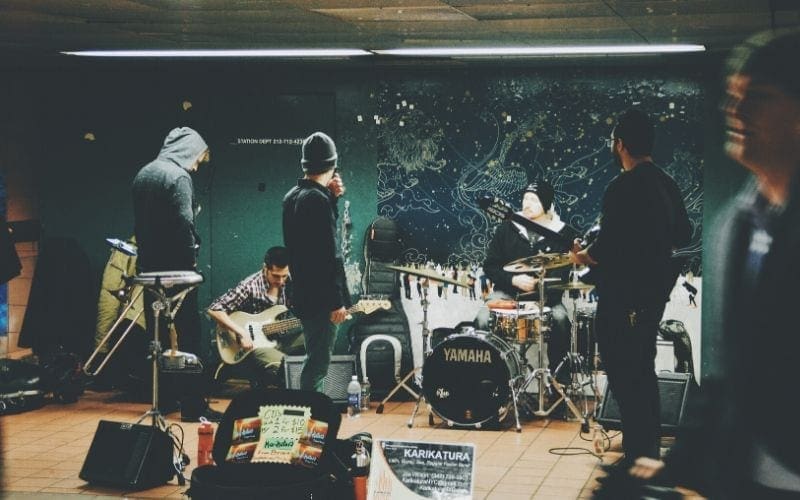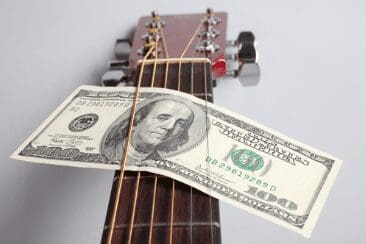Let’s say you have written a song, made a beat, directed a film, written lines of code, designed a product or created anything. This would be protected under intellectual property law! Looking for an exact Intellectual Property definition? Well, Intellectual Property (IP for short) is what allows artists, designers, programmers and entrepreneurs to innovate and be compensated for their work. As a music industry entrepreneur or artist, you need to know about IP and how it works. By the end of this article, you will understand what intellectual property rights and copyrights are, and how they are relevant to the music industry. You will also learn how to protect your own copyright interests.

What Is Intellectual Property?
Intellectual Property is a broad framework of rights in law that protects ‘‘creations of the mind’’. Anything created by humans that is considered an artistic, cultural, or scientific creation has value, and is considered Intellectual Property. For example, stories in books, music, inventions, computer software, and designs are all types of intellectual property.
Intellectual property rights ensure that artists, inventors, designers, and creators in general, are recognized and financially compensated for their work.
There are all kinds of creations protected by intellectual property law. Within the broad framework of IP, there are four types (or subcategories) of intellectual property, dependent on the different types of creations.
The Four Types Of Intellectual Property
There are four main types of intellectual property:
Patents
Patents are permissions granted by governments to inventors and entrepreneurs, allowing them to protect their idea, invention, or product. They stop other people from using and profiting from your work.
Trademarks
Trademarks help you identify one trader from another. When individuals or companies set up a business or trade, they register their trademarks. This could be in the form of a logo, word, slogan, audio recording, or shape. Trademarks protect your business’s brand.
Copyright
This protects artists’ creative works, and gives them the exclusive right to use their creations however they like. Copyright protects creations like literary works, music, recorded sound, film, and photographs.
Registered Designs
Registered designs are granted to creators who create new and distinctive patterns, configurations, and shapes – designs of products! A new guitar body shape would be an example.
As creators and entrepreneurs working in the music industry, the two types of intellectual property we are most interested in are Copyright and Trademark.
Copyright & Intellectual Property Jargon: Explained
Before we go in-depth on copyright and trademarks, here is a quick rundown of common terms you will hear when talking about IP.
Works: Works is a synonym for any artistic body of work. For example, a book is a work, a song is a work, etc.
Territory/ies: Territory refers to the place in the world where your copyrights are enforced. For example, the UK is a territory, Europe is a territory, even ‘worldwide’ is a territory, and so on… some contracts even specify the universe!
Moral Right – A moral right is a right included in copyright law. It always stays with the author of the work, even if they sign their rights to someone else.
Copyright

Copyright is the bedrock of the music industry. It enables music owners, creators, and entrepreneurs to make a living, and gives any author or owner of musical works the right to copy (meaning reproduce, perform, adapt, re-work) their music.
Long-time music lawyer, consultant and author Ann Harrison sums up copyright perfectly:
“…the right to authorize the reproduction of a musical or literary work with or without visual images.. the right to authorize the distribution of the work; to rent or lend the work to members of the public; the right to authorize distribution of the work; to rent or lend the work to members of the public; the right to authorize public performance of the work, or its making available to the public, and the right to make an adaptation of the work, or to do any of the above in relation to an adaptation. As the copyright owner, you can allow or prevent someone from doing all or any of these things either throughout the world or in a particular country…”
… and this doesn’t even mention all of your rights!
Music creators and owners earn a living by exploiting these rights. Copyright law is different in different parts of the world – although policymakers and creative industry trade bodies do try to keep copyright laws consistent and flexible to avoid unwanted infringements and complications. It is also good for the global creative industries!
When Does Copyright Start And End?
In most territories, like the UK and EU, your copyrights come into effect the moment your work is created, provided it has been captured in some tangible format (e.g. pen to paper, or a rough recording on your phone). In other territories like the US, you must register your works at the US copyright office before you can claim copyright.
Copyright does eventually expire, but it is nothing to worry about. It doesn’t expire until 70 years after the owner’s death. In other words, your copyrights are for life, plus 70 years. This applies to the UK, EU, and US territories.
Note: To keep things straightforward, for the remainder of this article, let’s refer to copyright only as it relates to the music industry.
Intellectual Property: Music Industry Dynamics & Copyright

Now that you have a better idea of copyright, you can begin to see how this enables the music industry to function. In fact, copyright is the bedrock of the music industry.
Music companies, related music organizations, artists, entrepreneurs, songwriters, musicians, and producers can all use the rights granted to them in copyright law to generate income from their music. They all manage, exploit, administer, and license their copyrights and this produces income.
There are 5 types of (common) copyright owners in the music industry.
Songwriters Or Composers
Songwriters or composers create copyrights when they write music and/or lyrics, and then more copyrights are created when they record the music. They work with businesses like music publishers and record labels to create more copyrights and generate more income.
Musicians
Musicians create copyrights by performing on records. They also generate royalties from reproducing songs and compositions.
Artists
Traditionally, artists create copyrights by performing on records, which are then sold to generate income. Nowadays, they usually write songs, perform with instruments, produce, and perform on records.
Music Publishers
Music publishers are businesses that work with songwriters, artists, and composers, to manage their publishing rights in their copyrighted works. They also try to generate more income by licensing these rights to businesses to use commercially.
Record Labels
Record labels invest in artists and producers, market their music, and manage the mechanical rights in their recorded music. They usually own an artist or producer’s recorded music for a period.
Collection Societies
Collection societies are non-profit organizations that are set up all over the world and collect mechanical, publishing, and performance royalties for music creators when their copyrighted works are used.
Intellectual Property: Your Music Rights

Music rights and copyrights are terms that can both be used to refer to the rights you have in your music. Don’t think of your music rights as separate. Your music rights are a collection of rights wrapped up in the framework of copyright.
Once copyrights come into force, consider your works well protected.
Trademark
Another IP framework that you should be aware of is Trademarks. If your music brand consists of logos, a word, or something that indicates your brand, registering it as a trademark is worth doing.
If you run a label and sell merchandise, or work with up-and-coming artists, registering your trademarks can protect you and your business from copycats and infringement. Registering trademarks also allows you to monetize your brand by licensing or selling it.
A general rule is, if you have a brand or multiple brands and are beginning to attract and do a lot of business, you should register your trademarks.
Intellectual Property: 5 Things To Remember About Copyright

- There are four types of intellectual property: Patents, Trademarks, Copyright & Registered Designs.
- Artistic works (books, movies, music, sound recordings, plays etc) are protected by copyright.
- Copyright is a collection of rights enabling the rights owner to be recognised and financially compensated for their creations. This lasts for the lifetime of the owner/creator plus 70 years after their death. This applies to UK, EU and US territories.
- The music industry generates income by managing, exploiting, administering, and licensing copyrights.
- Copyright is the bedrock and lifeblood of the music industry.
Final Words On Intellectual Property
Intellectual Property can get pretty technical and complicated. Therefore, it is usually best left to entertainment lawyers. The good thing is that music industry professionals don’t need to understand the ins and outs of copyright, they just need to know some of the basics. So, for artists or entrepreneurs, you can rest easy knowing that once your works are copyrighted, they are protected. This, therefore, means that you can begin exploiting the rights to your works to generate income.










